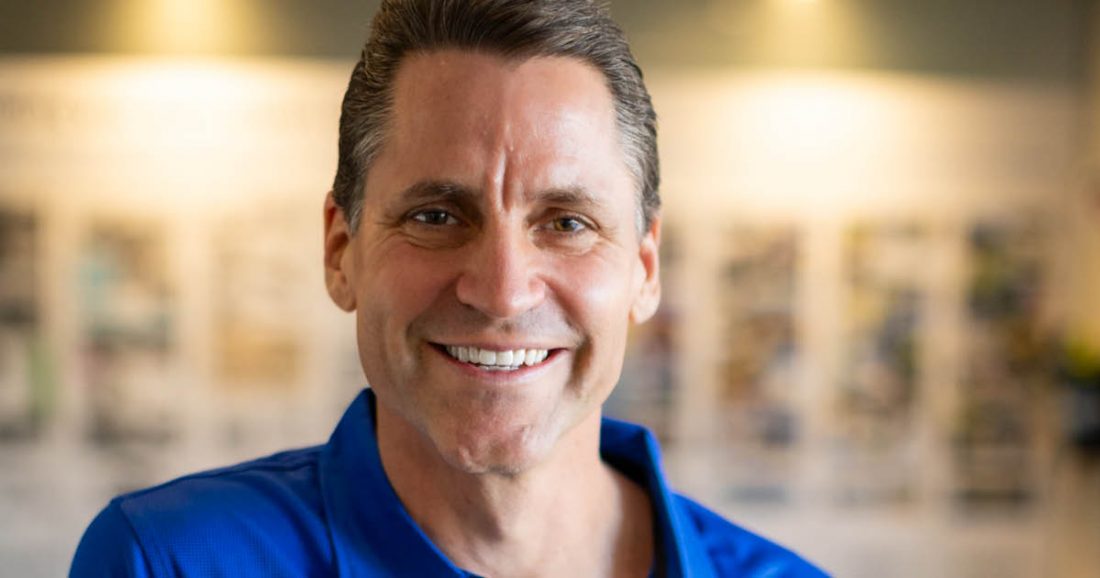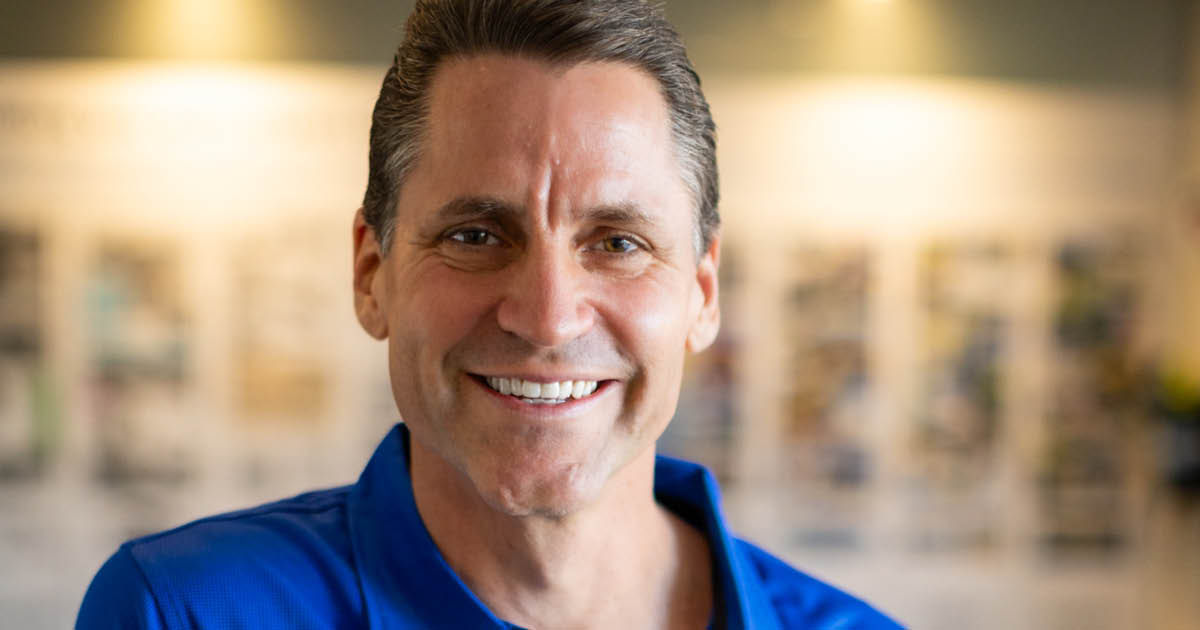From dancing with Kylie Minogue at the Formula One, to flying in a stunt plane with former Royal Australian Air Force top gun fighter pilot Matt Hall, there’s no question that the newly anointed CEO of O’Brien, Miles Wilson, has had his fair share of thrills.
“I’ve done some pretty fun stuff,” he tells The CEO Magazine, referring in large part to his time in his former position as Managing Director of Red Bull. “But as amazing as that sounds, I’m also not 21 anymore.”
These days, Wilson is more of a family man. With that particular role involving plenty of weekend commitments due to the nature of the brand, it was time for a change.
“It was a lot of fun but four years felt about the right number,” he reflects.
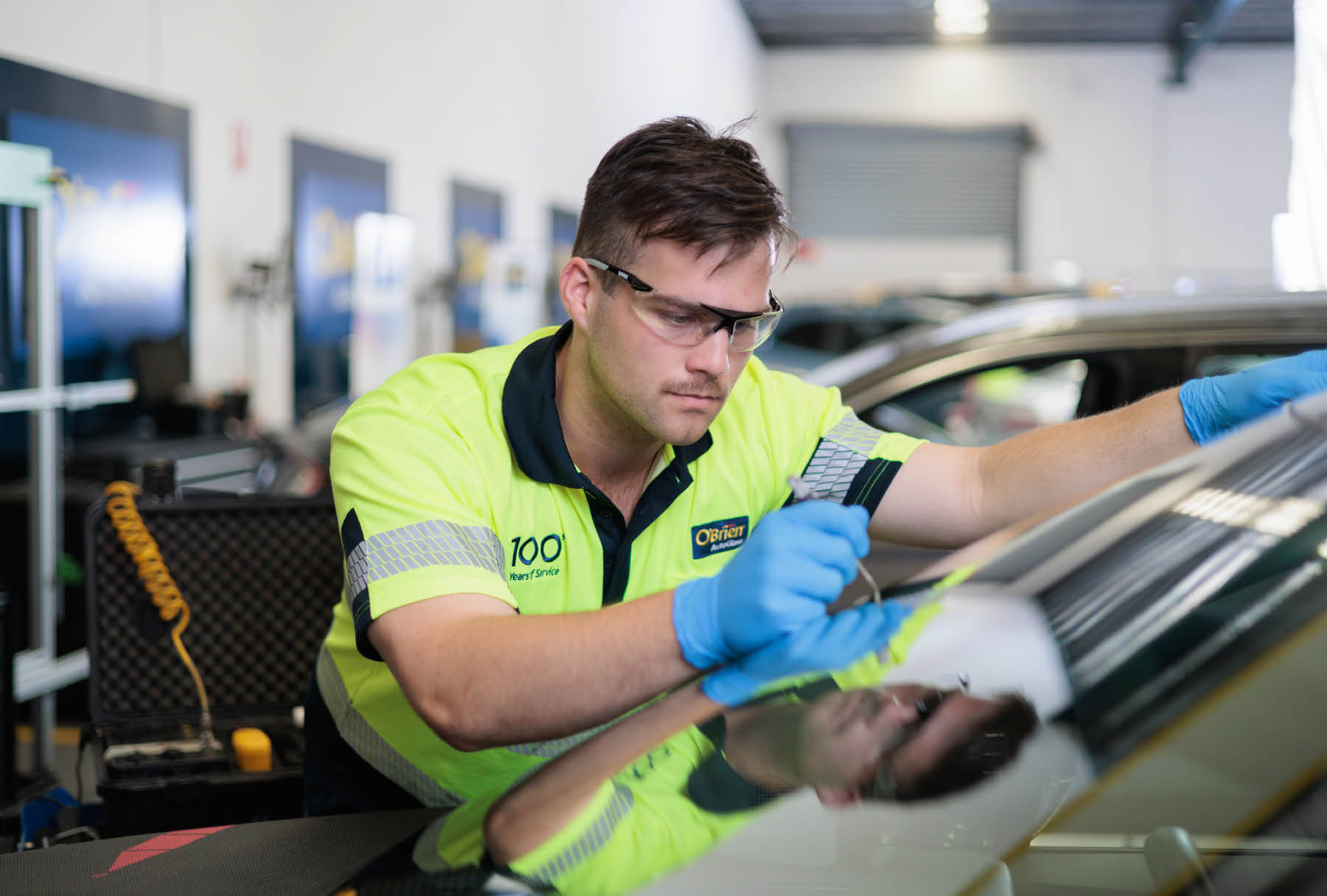
“Prompted awareness is incredibly high. Unprompted awareness is very good. There’s opportunity there for sure.”
His new role as CEO of O’Brien, therefore, represents a move in a new direction, taking him away from a background firmly rooted in the world of fast-moving consumer goods with significant stints with other big brands such as Diageo and Coca-Cola.
“I wanted to do something different and this takes me more into the service industry than the product industry, while still being anchored to a strong brand at its core,” he explains.
The new position, which he took on in May this year, also gives him the chance to work more in the consumer space than B2B, which he is already so familiar with.
Not only that, but thanks to its strong position, taking on O’Brien into its 100th year comes with abundant possibilities.
“It is a very healthy brand,” he says. “Prompted awareness is incredibly high. Unprompted awareness is also extremely good, but there remains opportunity to stretch the brand even further.”
The next step
Elevating O’Brien to the next level so that it becomes one of Australia’s most respected and trusted brands is on his agenda, Wilson shares, highlighting its 100-year heritage and solid Australian credentials as the foundations for this mission.
He sees great benefits in leveraging the as-yet untapped potential offered by synergies between the glazing and electrical and production divisions.
“There’s definitely scope for that and really just evolving the company from a very well-run business into one that really could be a tier one organization,” he says.
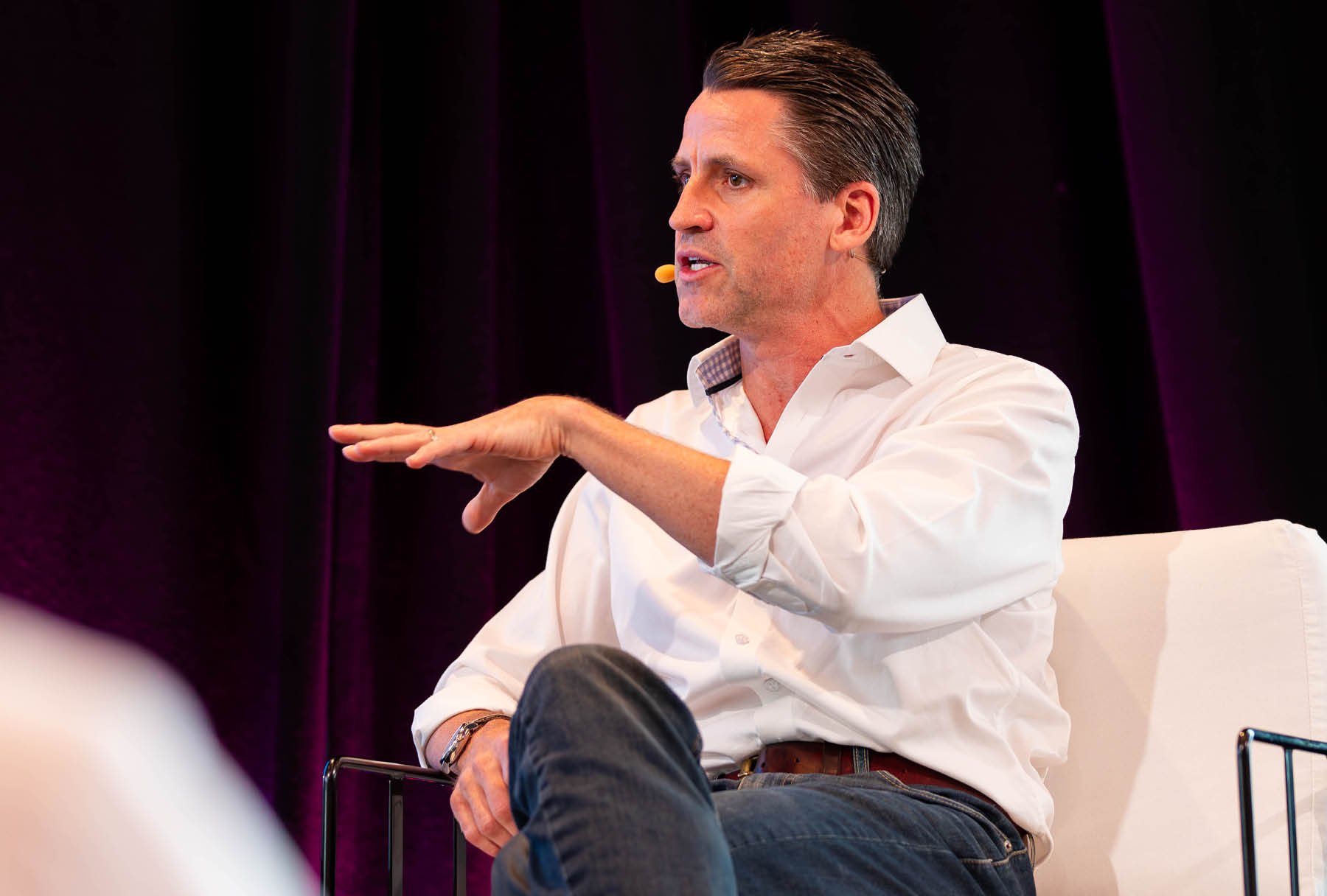
“There’s definitely scope for really just evolving the company from a very well-run business into one that really could be a tier one organization.”
But while the company’s healthy ‘front-end’ is leading it in the right direction, a fit-for-purpose supply chain is essential to support the growth ahead.
“We’re now starting to stretch on capacity because the front has been growing so well over the last five years.”
Part of the challenge for Wilson, as he pursues this ambitious goal, is to ensure that O’Brien is keeping pace with some of the biggest trends disrupting the business landscape. Sustainability is a non-negotiable these days, for starters.
“That just wasn’t a thing 10–15 years ago, but consumers are making conscious decisions around the sustainable and ethical practices of organizations and making purchasing decisions based on that,” he says.
“That’s been a fundamental shift in business and very much an element that we all think about as we go to market.”
Diversity, equity and inclusion (DE&I) is another area of considerable change, placing significantly higher on the corporate agenda than it did 20 years ago.
“The DE&I agenda is very much front and center, which is wonderful,” Wilson says. “So as a leader of a business, it’s very much a constant talking point now, which it wasn’t back in the day.”
Another notable shift is the explosion of data in terms of its availability, its accuracy and its superior level of intelligence.
“AI is coming through, too, but that hasn’t really had an effect yet. But just the availability of consumer information, a lot of that’s driven by the internet and what that provides us – that’s been a huge change,” he says. “Now, there’s a wealth of information out there.”
This is particularly true in Australia, he says.
“Australia is a very good and rich data market. And that’s definitely one of the things I enjoy about being here.”

Recognizing the great
Wilson’s impressive vault of experience, combined with his constant commitment to learning, makes him an ideal judge for The CEO Magazine’s 2024 Executive of the Year Awards.
“I’m fascinated to see the stories that come through,” he says. “I’m about to meet, virtually or physically in some cases, leaders of industries doing stuff that I had no idea we were doing. So I will personally learn a lot from this and hopefully there may be some things I can take back to my business. There are certainly some things that I’ll learn that will make me a better person.”
As well as learning what is going on in other industries, Wilson sees great networking potential in the prestigious event and is particularly looking forward to meeting the inspiring cohort of nominees.
“I just really like the idea of people getting recognized for the good work that they’re doing,” he says. “And if I can play a role in that in some small way, I’m very happy to do so.”
Last, but not least, is the sheer pace of today’s business world, with action and responses expected at lightning fast speeds.
“The way in which we can communicate with each other now is so different to the way it was 20 years ago,” he notes. “I mean, there was no email when I first started work. So just the speed in which we react and operate now is so much faster and so different to the way it was.”
It’s both a blessing and a curse. On the plus side, this faster business world allows more to be done.
“It allows us to fail faster, learn faster, grow faster,” Wilson says.
But its blurring of the line between work and play is more problematic.
“We’re always on. It’s very hard for us to be off,” he reflects. “Business is better for it, for sure, but how we balance that outside of the office is challenging. That’s the downside of it, I guess.”
Repositioning with purpose
Looking ahead, Wilson sees social commerce as holding great potential, highlighting it as an arena where O’Brien is certainly keen to play.
“Over 50 percent of gen Z start their buying journey on social media, which is overtaking any other channel,” he says. “And so that gen Z entry-point consumer is strategically critical to any business that is really looking to grow a brand and play the long game.”
However, he warns that these coveted consumers are wary of a curated approach that lacks authenticity.
“That’s a really exciting trend. It’s not a new trend, but it’s a growing trend and how brands tap into that in an authentic way is really important,” he explains.
“There’s relevance for that for me at O’Brien – we all drive cars and whether you’re 18 or 48, if you get a chip to a windscreen, you’ve got to repair it.”
By further strengthening the O’Brien brand and building its presence across a broad range of channels, Wilson aims to make sure it is the first company that springs to mind for every demographic.
“The stuff we do on TV is great and it works, but I think the below-the-line social influencer element is something that’s important to us and a real opportunity,” he says.
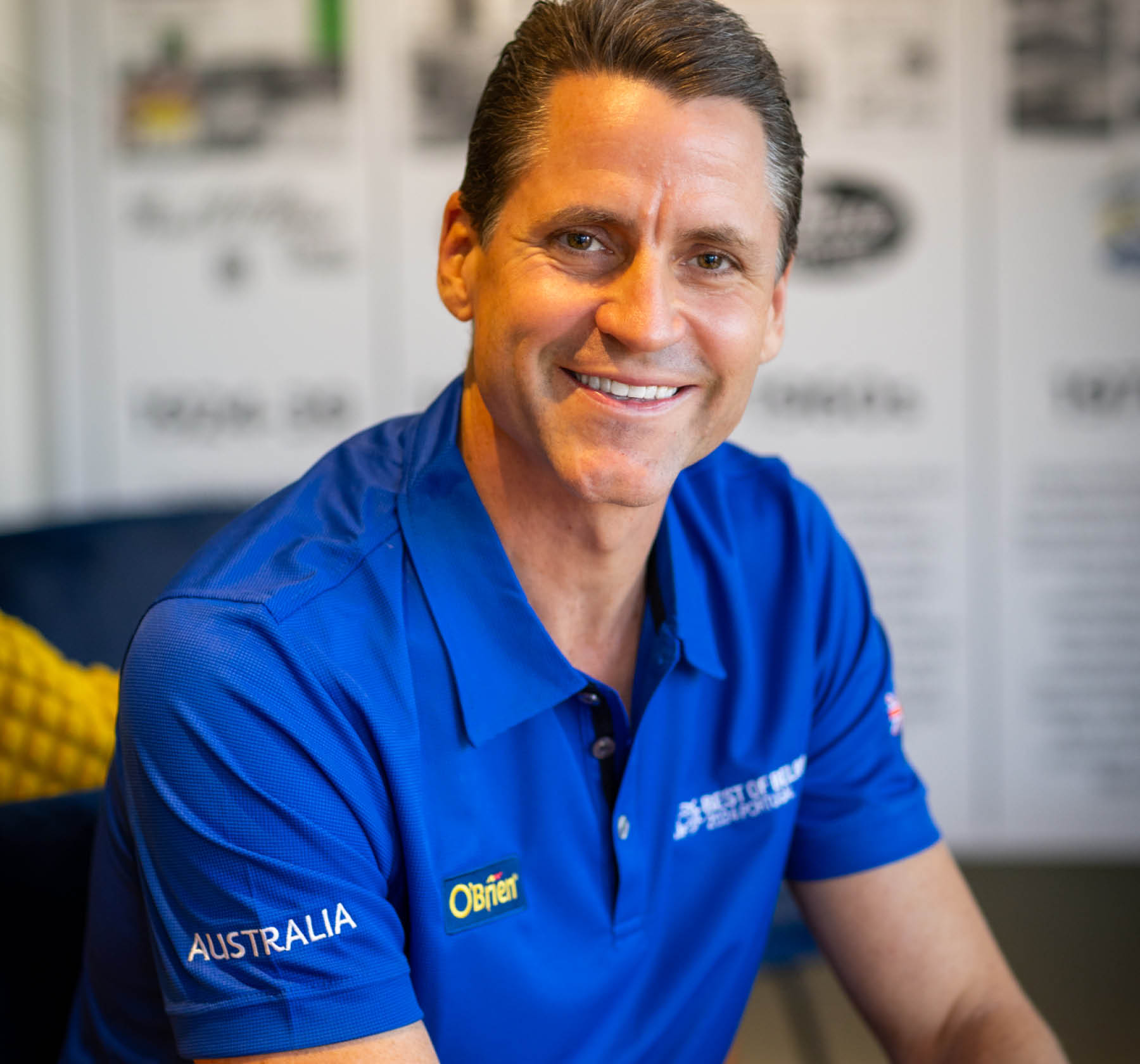
“How I behave has a big impact on the culture of the organization.”
For Wilson, it is this chance to make a mark on such an iconic Aussie brand that holds such allure. When quizzed on what motivates him, he admits the answer has changed over the years.
“When you’re young, you just want to tackle the world and prove to everyone that you’re the smartest kid in the room,” he reflects.
“But as you move up through your career, your purpose changes. It’s no longer about the next big job or getting the promotion – I’ve had plenty of those now. What really gets me out of bed and gets me excited about O’Brien and Belron, our parent company, is the opportunity to really leave a legacy and build on a culture that is real and genuine.”
His leadership style plays into this vision, with him placing great emphasis on being highly approachable. Having worked for both approachable and non-approachable leaders over the years, he has come to understand where he wants to sit on that spectrum.
“How I behave has a big impact on the culture of the organization,” he says.
“When my time’s done at a company, I want to be able to look back and say that I did that. You probably only get two or three of those in your career and I’m sure that O’Brien will be one of those.”

